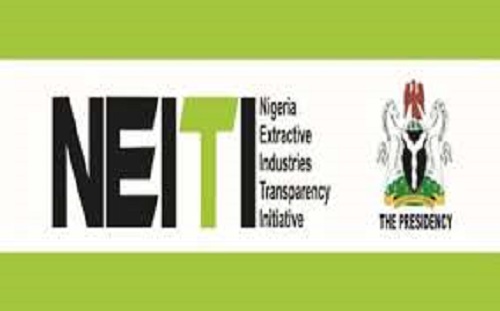…Seeks Debt Justice, Equitable Climate Financing & Adoption of EITI Resource Mobilisation Agenda
…Set To Release Policy Brief on Sub National Debt Development Financing and Nigeria Tax Reforms.
The Nigeria Extractive Industries Transparency Initiative (NEITI) has set agenda for the forthcoming International Conference on Financing for Development in Spain as it urges delegates to canvass for debt justice, equitable financing and adoption of Extractive Industries Transparency Initiative (EITI) model of resource mobilization amongst other recommendations.
The Executive Secretary of NEITI, Dr. Orji Ogbonnaya Orji, stated this today in Abuja at the National Dialogue on Financing for Development in Nigeria organized by ActionAid Nigeria.
Dr Orji emphasized the need for delegates to be guided by well-defined national interests and speak with a unified voice. Noting that “the current global economic order is rapidly evolving, and it is crucial that developing countries, especially those in Africa, demand a more equitable financial system”.
He urged the delegates to canvass for the following key priorities: Re- definition of Development Financing Rules; Champion Debt Justice and Fiscal Sovereignty; Advance Equitable Climate Financing; Support Reform of International Financial Institutions and Promotion of EITI’s Global Resource Mobilization Agenda.
In redefining development financing rules, Dr Orji appealed to the delegate to “advocate for a more just global tax regime that curbs illicit financial flows, closes loopholes exploited by multinational corporations, and protects the tax base of developing resource-rich countries”.
“The delegates must also push for fairer debt restructuring mechanisms that reflect the realities of developing nations—especially those still reeling from the impacts of COVID-19, commodity shocks, and climate crises”. Dr Orji advised
Additionally, they should advance for equitable climate financing by demanding direct and accessible climate finance for countries like Nigeria, where communities are bearing the brunt of extractive activities and environmental degradation, yet receive a disproportionately small share of global climate funds.
“Support Reform of International Financial Institutions through inclusive governance of global financial institutions like the International Monetary Fund (IMF), World Bank, and the Organization for Economic Co-operation and Development (OECD), ensuring African voices are heard on matters of taxation, debt sustainability, and public finance reforms.
Dr Orji explained that “as one of the leading implementing countries of the EITI, Nigeria must canvass international support for deepening the EITI’s global role in contract transparency, energy transition tracking, and digital disclosures to enhance revenue mobilization”.
He used the platform to announce that NEITI is set to release Policy Briefs on Sub -National Debt and Development Financing and Nigeria’s Tax Reforms to interrogate the growing debt burden at the sub national and give insights into the on-going tax reforms in Nigeria.
Dr Orji stated that “Both policy briefs are designed to support stakeholders—policymakers, legislators, development partners, and civil society—with data-driven tools to strengthen Nigeria’s domestic financing architecture.
The Executive Secretary explained that “The policy brief—titled “Beyond Assent: Pathways for Implementing Nigeria’s New Tax and Revenue Framework”—provides forward-looking recommendations on how to operationalize Nigeria’s ongoing fiscal and tax reforms. It reflects on key challenges and opportunities, and proposes strategic pathways to bridge the gap between high-level policy and real-world implementation.
Dr Orji explained that the second policy brief on Subnational Debt and Development Financing aptly titled “Beyond Federal Allocations: The Cost of Borrowings and Debt Servicing at State Level in Nigeria”—interrogates the growing debt burden at the subnational level. It offers insights into how borrowing practices are impacting state-level development and outlines options for improving debt transparency, fiscal responsibility, and accountability across the 36 states.
Earlier in his welcome remarks, the Governance Manager, ActionAid Nigeria, Mr. Celestine Odo who spoke on behalf of The Country Director, ActionAid Nigeria. Dr. Andrew Mamedu stated that the upcoming Conference in Seville Spain presents a vital opportunity to advocate for reforms that center around domestic resource mobilization, financial accountability and inclusive economic growth. We must push for practical, people-oriented solutions grounded in justice, equity and the living realities of Nigerians.
He explained that today’s dialogue is an opportunity to share citizen driven strategies and more importantly, we need a unified front, one that enables both government and civil society to speak with one voice as we prepare for Seville.
The Executive Director, African Centre for Leadership, Strategy and Development (Centre LSD), Dr Otive Igbuzor while giving his speech stated that Nigeria is not mobilizing enough domestic resources for development. NEITI reports has consistently revealed that many companies are not remitting what they owe.
Dr. Igbuzor emphasized the need for sustained public pressure and placing development at the core of national priorities. Noting that “Financing for development is about delivering real impact to the people.
The National Dialogue on Financing for Development was organized by ActionAid Nigeria to generate practical policy proposals and strategic recommendations for the forthcoming 4th International Conference on Financing for Development in Seville, Spain later this month.


Comment here